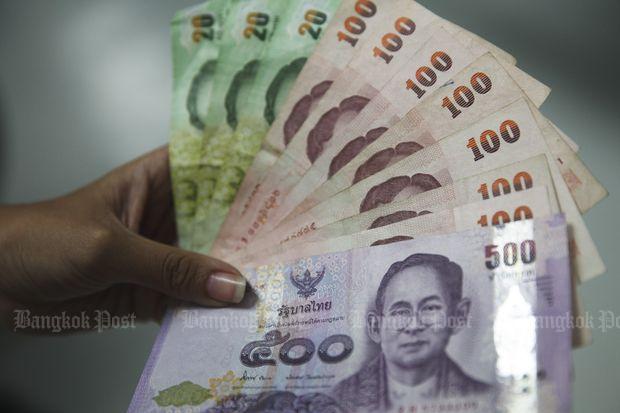Thailand: Baht volatility seen ahead of election
The baht is about to hit some turbulence — not only volatility from the March 24 election, but also a period of seasonal weakness that is fast approaching.
The baht, Asia’s best-performing currency, has weakened in the second quarter for seven of the past 10 years, partly due to foreign repatriation of Thai dividend payments and a seasonal fall in tourist demand, according to market participants.
The currency has already retreated almost 2% from its strongest since 2013 against the dollar last month amid equity outflows as its first general election since a military coup five years ago approaches.
“There is an extraordinary item this year, which is the election and has weighed on the baht somewhat already,” said Kobsidthi Silpachai, head of Capital Market Research at Kasikornbank Plc. “Seasonal factors should also drag the baht lower starting after the Thai new year holiday [Songkran] in mid-April.”
Tourism numbers will ebb in April and dividend payment season will peak by May, which usually cause seasonal weakness in the second quarter, he added.
The total of dividends to be paid to foreigners in 2019 is estimated at 87.6 billion baht, about the same as last year, according to Kasikornbank. The bank predicts the currency will weaken in the second quarter, and decline to 33 per dollar by the end of this year, Mr Kobsidthi said. It was at 31.64 per dollar on Tuesday.
The baht is still the region’s best performer against the dollar year-to-date, up about 3%, according to data compiled by Bloomberg. It was the top emerging-market currency in 2018, supported by the country’s current-account surplus amid a strong year for tourism.
The election has stoked concerns that a cycle of political instability could return, posing a risk for an economy already absorbing a slowdown in exports and growing more slowly than some of its neighbours.
Investors should hold off any additional purchases of Thai equities as there will be more economic uncertainty leading up to the election, Chris Wood, a Hong Kong-based strategist at CLSA Ltd, said last week.
“We expect seasonality factors to turn against the baht in the second quarter,” wrote Duncan Tan, strategist at DBS Bank Ltd in a note Monday. “The next three months could be particularly challenging.”
Source: https://www.bangkokpost.com/business/finance/1647396/baht-volatility-seen-ahead-of-election


 Thailand
Thailand




